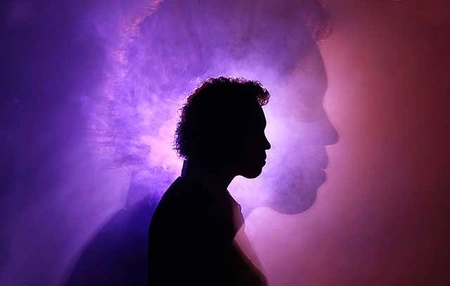As human beings, we are acquainted with the five basic senses: sight, hearing, smell, taste, and touch. These senses allow us to perceive the physical world, facilitating interaction with our environment and each other. However, it is believed by some that an additional sensory perception, often referred to as the “sixth sense“, exists. This is believed to enable certain individuals to perceive subtle energies, foresee events, or communicate with non-physical entities.
Understanding this phenomenon can be challenging due to its elusive and unquantifiable nature, unlike our other more tangible senses. Nevertheless, there are a few key indicators that might suggest a person has a heightened sixth sense. The following are 8 signs that indicate a person possesses a sixth sense. The data has been collected by LotusBuddhas from reports shared by individuals who have had extraordinary experiences on spiritual forums.
Video explaining human Sixth Sense: https://www.youtube.com/watch?v=PzaAi5Pf8ag
1. Heightened Intuition
People with heightened intuition often display a superior ability to understand complex patterns or anticipate the consequences of certain actions without reliance on logical or step-by-step thinking. They might instinctively make decisions or solve problems with remarkable accuracy, even when they can’t articulate a clear reasoning process. This is not to be mistaken for guesswork or pure chance; rather, heightened intuition is consistent and often uncannily accurate.
Such individuals often feel a deep sense of ‘knowing’ that seems to emerge from within, unconnected to any conscious thought process. They may describe this as a ‘gut feeling’ or an ‘inner voice,’ an internal guidance that seems to spontaneously provide insights or steer decisions. This ability extends to understanding people and social dynamics, where those with heightened intuition can sense emotional states, motivations, or even hidden intentions that others might miss.
The inclusion of heightened intuition as a sign of the sixth sense stems from its common traits with other psychic or extrasensory phenomena often associated with this enigmatic sense. Like the reported experiences of precognition, clairvoyance, or telepathy, heightened intuition involves accessing information outside of normal sensory channels or logical deduction. It suggests a different, potentially more direct way of perceiving reality, a ‘tuning in’ to subtler dimensions of experience that most people might overlook.
2. Strong Empathic Abilities
Strong empathic abilities, sometimes referred to as being an ’empath,’ involve more than just being good at reading people or being highly sensitive. Empaths often report feeling the emotions of others as if they were their own, to the extent that it can be challenging to distinguish between their own feelings and those picked up from others. They may sense when someone is upset or anxious, even if that person is doing an excellent job at hiding it. Moreover, they often intuitively know when someone is being dishonest about their feelings.
Beyond emotional sensitivity, some empaths report physical empathy — experiencing others’ physical sensations, such as pain or fatigue. Others describe environmental empathy, feeling deeply affected by the ‘vibes’ of certain places or even broader environmental issues.
The association of strong empathic abilities with the sixth sense stems from the nature of the experiences themselves. Much like the sixth sense, empathy on this level involves the perception and understanding of information that isn’t accessible through the traditional five senses. It’s not something you can see, hear, touch, taste, or smell, but it is nevertheless intensely felt and can have a significant impact on how an empath navigates their life.
Just as heightened intuition suggests a more direct form of knowledge, strong empathic abilities point to a more direct form of emotional understanding. It’s not about ‘reading’ someone’s body language or tone of voice; instead, it’s an immediate, visceral sense of another person’s internal state. This directness, and the fact that it often occurs without any conscious effort on the part of the empath, aligns strongly with other experiences commonly attributed to the sixth sense.
3. Vivid, Prophetic Dreams
Prophetic dreams are typically characterized by their intense realism and detail, often indistinguishable from waking life while the dream is occurring. Upon awakening, these dreams are usually remembered very clearly, unlike many regular dreams that tend to fade quickly from memory.
The ‘prophetic’ nature of these dreams becomes apparent when an event, situation, or encounter from the dream subsequently occurs in reality, often with remarkable accuracy. This might involve major events or smaller, mundane occurrences. Importantly, these dreams go beyond mere coincidence or déjà vu; the dreamer often reports a strong, intuitive feeling of recognition when the dream event unfolds in reality.
The association of vivid, prophetic dreams with the sixth sense arises from the inherent mystery of these experiences. If one dreams about a future event with no prior knowledge or logical reason to anticipate it, it suggests some form of extrasensory perception or non-linear understanding of time. This falls squarely into the realm of the sixth sense, as it transcends the limitations of our conventional five senses and linear perception of time.
Moreover, like other experiences associated with the sixth sense, prophetic dreams often occur spontaneously and are not something that can be controlled or induced at will. This unpredictability and lack of control align with other reported sixth sense experiences, further supporting the classification of prophetic dreams as an indicator of this sense.
4. Perceiving Non-Physical Entities
The ability to perceive non-physical entities generally entails an awareness or sensing of presences that are not visible or perceptible through the traditional senses. This could involve seeing apparitions or images, hearing voices or sounds, or sensing a presence in a way that is hard to articulate. These experiences often occur spontaneously, and can vary widely in their intensity and frequency.
It’s important to note that individuals who report such experiences often assert they are not simply the product of imagination, hallucination, or misinterpretation of natural phenomena. Rather, they describe them as experiences that feel distinctly real and are different from ordinary perception.
By definition, the sixth sense involves perceiving or accessing information beyond what can be known through the traditional five senses. The experience of perceiving non-physical entities aligns with this definition, as it surpasses the conventional sensory perception of reality.
This phenomenon may also involve a form of extrasensory perception, as it appears to involve the sensing of energy, consciousness, or entities that are not physically present or detectable. Whether one interprets these entities as spirits, energies, or something else entirely, the ability to perceive them could be considered a form of sixth sense.
Additionally, like other experiences associated with the sixth sense, the perception of non-physical entities often occurs outside of one’s control and can’t be reliably replicated at will. This unpredictability and lack of control are characteristic of many sixth sense experiences, reinforcing the classification of perceiving non-physical entities as a possible sign of this elusive sense.
5. Sensing Energy
The phenomenon of sensing energy involves an intuitive awareness or ‘feeling’ about the energy or atmosphere associated with a person, location, or even an object. People with this ability often describe it as feeling a particular ‘charge,’ ‘weight,’ or ‘resonance,’ which they can pick up on and interpret. They might sense whether a place feels welcoming or unsettling, or detect the emotional state or intent of a person, beyond their explicit communication.
Sensing energy isn’t about physical touch or seeing something visually, but rather a kind of intuitive ‘knowing.’ This might manifest as an inexplicable sense of comfort or discomfort, an instinctive trust or distrust, or even physical sensations like warmth, coolness, tension, or relaxation.
Traditional sensory perception relies on physical stimuli and concrete evidence. However, sensing energy involves perceiving something intangible and abstract, suggesting an extrasensory or ‘sixth sense’ capability.
Like other phenomena associated with the sixth sense, the ability to sense energy seems to involve a more direct form of perception. It bypasses the need for explicit information or physical evidence, instead offering an immediate, intuitive sense of the energetic quality or emotional tone of a situation, place or individual.
6. Experiencing Déjà Vu Frequently
Déjà vu is a common experience, reported by up to 80% of the population. It often occurs spontaneously and lasts only a few moments. The experience is characterized by a compelling sense of familiarity with an event or situation that should be unfamiliar. For example, you may walk into a city you’ve never visited before and feel as though you know the streets and buildings intimately.
Frequent déjà vu is less common and is characterized by having these experiences regularly. Some individuals report experiencing déjà vu multiple times a month or even several times a week, a frequency much higher than the norm.
The idea that frequent déjà vu might be a sign of the sixth sense is rooted in the extraordinary nature of the experience. Déjà vu seemingly involves an awareness or knowledge that cannot be attributed to past experience or conventional sensory information. It’s as if one is tapping into a source of understanding that transcends normal cognitive processes, which aligns with the concept of a sixth sense.
However, it’s worth noting that there are also various scientific theories regarding déjà vu that do not involve a sixth sense. These include the ‘split-perception theory,’ which suggests déjà vu occurs when perception is momentarily split into separate conscious experiences, and the ‘memory-based explanation,’ which proposes déjà vu arises from an unconscious memory or similarity to a past experience.
7. Receiving Premonitions
Receiving premonitions involves a certain kind of foreknowledge about events or circumstances that are yet to occur. Premonitions can come in various forms, including intuitive feelings, vivid dreams, or even physical sensations. These experiences are often spontaneous and unpredictable, and they may pertain to both significant events and ordinary happenings.
The specificity of premonitions can range widely. Some people may have a general sense of impending danger or change, while others may receive more precise insights about future circumstances. Regardless of their form or content, premonitions have one thing in common: they convey information about future events that should not be available through ordinary means of perception.
The sixth sense is commonly understood to involve the perception of information or events beyond the capabilities of the traditional five senses. Premonitions fit this description, as they involve insights about future events that cannot be accessed through ordinary sensory perception or rational inference.
Furthermore, like other experiences commonly associated with the sixth sense, premonitions often occur without any conscious effort or control. Individuals usually report these experiences as spontaneous insights or feelings that arise without their intention or volition. This element of spontaneity and lack of control is a characteristic feature of many sixth sense experiences, further supporting the association of premonitions with the sixth sense.
8. Psychic Abilities
Psychic abilities can take various forms, ranging from telepathy (the ability to perceive others’ thoughts or mental content), clairvoyance (the ability to gain information about an object, person, location, or event through means other than the known human senses), precognition (knowledge of a future event), and even psychokinesis (the purported ability to move or manipulate objects by the power of the mind).
People who claim to have psychic abilities often describe these experiences as a heightened sense of intuition or a ‘knowing’ that goes beyond logic or rational understanding. These abilities are typically spontaneous, and the specific skills, as well as their frequency and intensity, can vary widely among individuals.
Psychic abilities involve the direct perception or knowledge of information that cannot be obtained through ordinary sensory channels or logical reasoning, reflecting the essence of what we understand as a sixth sense.
They often arise spontaneously, in response to particular situations or stimuli, and are not something that the individual can necessarily control or manipulate at will. This unpredictable, involuntary aspect is characteristic of many reported sixth sense experiences, further linking psychic abilities to the concept of the sixth sense.
If you have the above signs, you may be unusual, and you have a Sixth Sense. LotusBuddhas doesn’t know whether to congratulate you, however, you have to understand that having a sixth sense does not make a person superior or inferior. It is simply a different way of experiencing the world, and it can often be overwhelming or confusing for the individuals involved. A balanced approach to understanding and integrating this sense into daily life is crucial.
In conclusion, while science is yet to fully recognize the existence of a sixth sense, various personal accounts and experiences suggest its presence in certain individuals. Recognizing the signs is the first step towards understanding and accepting this mystical facet of human perception. With a well-informed and open-minded approach, we can navigate the intriguing exploration of the sixth sense and its implications in our lives. The future of understanding human perception and cognition indeed holds exciting prospects.













